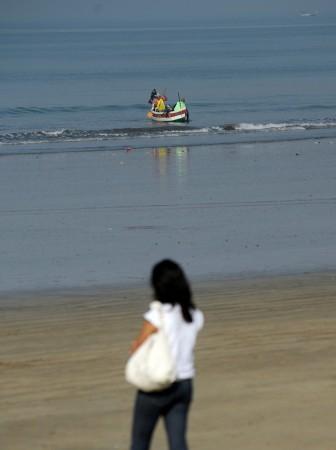The blue bottle jellyfish, also known as the Portuguese man of war, have been spotted on Mumbai beaches. Scores of these marines organisms came to the shores and injured numerous people who were in the waters at that time.
The blue bottle jellyfish are known to make an appearance on Mumbai shores during the mid-monsoon season. While the residents of Mumbai were used to small numbers of the jellyfish appearing every year, many residents said that the jellyfish population along the shores has been large this year.
Over the past two days, 150 people have been injured by the jellyfish. The jellyfish use their tentacles to inject venom into the humans. The venom causes an itching sensation and pain for hours in the injured area. Jellyfish venom has been known to kill only fish and not humans. Awareness has been created and people have learned how to treat the injuries.
"Since past two days nearly 150 people, including children were stung by jellyfishes. I use lemon to rub on the injuries caused by jellyfish bite to give people relief from pain."
The jellyfish were spotted in Juhu, Girgaum and Aksa beaches in Mumbai.

This has not been the first jellyfish attack in India recently. In 2017, warnings were given to visitors in North Goa where massive jellyfish blooms were spotted. The beaches in Panaji, Candolim, Vagator and, Morjim-Keri. Since these were not the bluebottle jellyfish, the injuries were minimal and were limited to mild itching and swelling.
To treat a jellyfish sting:
- Rinse the area with vinegar for at least 30 seconds.
- Remove the stings/tentacles with tweezers after soaking the affected area in warm water for 20 minutes.
- Use antihistamines to control the itching and swelling.
















